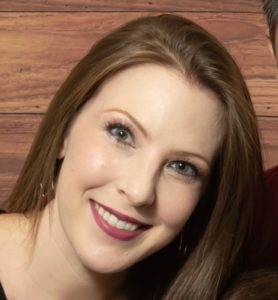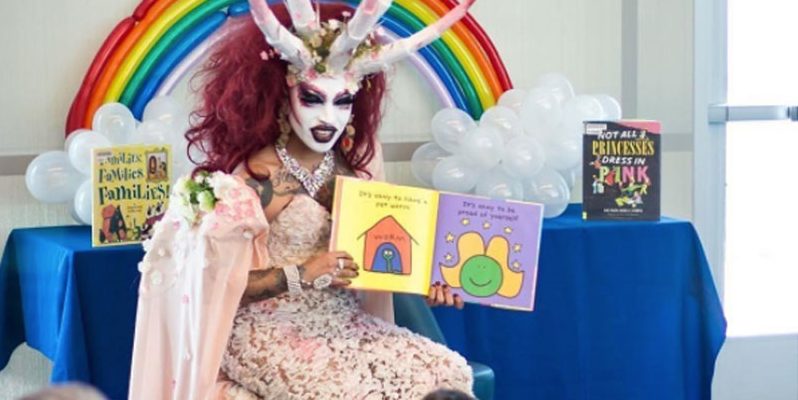“We must never stop striving for safe spaces for our kids to be unique and loved no matter what.”
These were the words of the Open Cathedral Church, discussing its decision to rent a room at the Leander Public Library to reinstate “Drag Queen Story Time” in the wake of its initial cancellation due to complaints from a disgruntled community. Leander is a small city just north of Austin, not far from my own city of San Antonio. It is unique because it is a relatively conservative community just outside of an extremely liberal Texas mega-city. Therefore, the debate is a hot issue for this Texas town. Opinions are as varied as the Texas weather, but my point of view falls squarely in the “No” camp.
The first reason I oppose this form of guidance for our children is that I do not believe every expression of sexuality is automatically a useful lesson about inclusion, particularly when kids are involved. Diversity of sexual expression is not a prepubescent virtue. This is because children are not yet inducted into the sexual world, nor should they be. Not every sexual manifestation is appropriate for kids. In fact, any but the most simple is probably out of place when dealing with little ones. This is a fairly obvious conclusion when we think about the range of sexualities, fetishes, and proclivities that we find in our society. To make the claim that our children are learning inclusion merely because there is overt sexual expression involved is foolhardy. There are many forms of sexuality that consenting adults have a right to indulge in that aren’t appropriate to introduce to kindergartners.
The claim that drag queens reading stories will teach our children “diversity” hinges on more than one false premise, the first being that these performers are celebrating THEIR sexuality. Whether or not all sexualities should be introduced early in life to teach inclusion is irrelevant in the case of drag queens because they are mimicking someone else’s sexuality. Drag queens are by and large not straight women, although that is what they are caricaturing. Instead, drag queens are almost exclusively adult males who are using satire, humor, and their bodies to lampoon female sexuality. Perhaps this is a part of the way they experience their own sexuality, but it is a round-about and very complicated social and sexual statement. “Drag Queen” is not a sexual orientation. It is a parody.

The simple fact that many of these men are gay does not automatically make their platform a social justice victory. If the reading circle was merely a group of gay men, there is no reason the children would even think about their sexuality instead of “One Fish, Two Fish” unless they were telegraphing it for that express purpose. The same could be said for a group of straight book readers. The “drag” component of the act, however, REQUIRES the audience to contemplate it, and this audience happens to be composed of 5 year olds.
My second objection is the particularly exaggerated way that women are portrayed by the men reading these stories. Not only is the drag culture exceedingly sexual, but the particular brand of sexuality is typically a “Jessica Rabbit,” male-fantasty version of women. The makeup, push-up bras, and 6 inch heels are all meant to mimic an extreme of female form and behavior. In most cases, this display of female sexuality is divorced from the everyday personality of the  man behind the makeup. The on-stage persona is extra-feminine, super-sexy, over-the-top. There is a reason this phenomenon was born in seedy nightclubs.
man behind the makeup. The on-stage persona is extra-feminine, super-sexy, over-the-top. There is a reason this phenomenon was born in seedy nightclubs.
These are generally not men who are claiming to find their true identity as women, but instead they are typically men who express their admittedly pretend identities through the feminine form. They are actors. They are comedians. They are satirists. They are exhibitionists. There is an element of voyeurism to a drag show and certainly a subversive mocking of social and sexual norms. If adults choose to participate in these shows, find them illuminating, think they are entertaining social commentaries- no one is stopping them. However, any logical person would see that a subculture that intentionally uses overt sexuality to make its point is not an appropriate conduit for teaching children.
It is impossible for the drag queens to read the stories without the children noticing and wondering about their forceful display of sexuality because that is THE POINT of drag queens. We do not put our children in sexual situations just so we can teach them lessons about accepting all subcultures of people. Our children are not testing grounds for sexual social justice theory. That is the province of adulthood. Kids will have plenty of time to accept this particular subculture if they so choose when they are old enough to understand its implications and methods of showmanship.
Another related concern is the sexual double standard involved. When discussing the issue, my sister asked the excellent question: “Would parents approve of a group of women reading stories to their little children while dressed as men with exaggerated sex characteristics like oversized, padded penises?” It seems like a ridiculous prospect, but how is it different than men with embellished breasts, lips, and bottoms reading Doctor Seuss? Are we winking and nodding just because we are used to those  depictions of women?
depictions of women?
Lastly, it bears repeating that the lesson we would be teaching is not one about children accepting themselves. The quote from Open Cathedral Church shows the critical error in this claim and another false premise in the argument- “safe spaces for our kids to be unique and loved.” This has literally nothing to do with the kids. It has nothing to do with the kids’ sexual orientation. Drag Queens are not kids. They are adults- almost exclusively male adults- who are using satire, humor, and their bodies to parody female adults. This is not about the children’s identities but about their parents and the social statements they want to make.
It is useful to think about the best and worst case scenarios for how these social statements will affect our kids. The ideal scenario for proponents of the story time would be that the kids learn to accept everyone- even people who might initially make them feel uncomfortable. The children may find these performers to be silly, funny, or interesting.
The worst case scenario is that the little ones will be scared, confused, or intimidated. They may develop an unhealthy view of female stereotypes, what constitutes a “woman,” and their own place in these questions. They may not understand why men are pretending to be over-exaggerated women. These performers are showing a very unrealistic version that mimics very few women accurately. As RuPaul himself said, “I do not impersonate females! How many women do you know who wear seven-inch heels, four-foot wigs, and skintight dresses?” His answer was a tongue-in-cheek response to the “female  impersonator” descriptor of drag queens, but it’s also an apt picture of the very box many women refuse to be put into in this women’s empowerment era.
impersonator” descriptor of drag queens, but it’s also an apt picture of the very box many women refuse to be put into in this women’s empowerment era.
I often take a “hands-off” approach when the issue at hand is something that I can merely choose to remove myself from while allowing others to “live and let live.” However, when our children are the target and we are talking about publicly sponsored events, we need to have a stricter standard. There are countless groups of people who have every right to express themselves but who we do not as a community invite to teach our children in tax-payer-funded arenas.
Communities do get a say in how their tax dollars are used and what they want to see directed at their kids in public venues. In this case, the community spoke. They do not want a troupe of sexual fantasy/hyperbole actors reading their children stories. A subset of the community reacted, and Open Cathedral Church chose to sponsor a private event. They DO have a right to rent a room in the library and carry on the event in a now-private setting, but are they right to do so? Is Drag Queen Story Time a necessary ingredient for our children to be part of an inclusive and diverse society? In my view, the answer from every thinking adult (and especially from every feminist) should be a resounding, “No!” There should be a simple solution for parents looking for an educational opportunity for their kids: find another one.
Follow Up to the blog post:
A report I have received about the reaction of a popular Leander Facebook “mom group” (LCB Mommas) to this community decision was extremely disappointing. The group states in its public group information page “Please note: Political posts from any party are not welcome on this page and will be deleted.” Nevertheless, the page allowed several posts about the Drag Queen Story Time drama- a clearly politicized community situation. According to my source, admins then disproportionately removed oppositional reactions on at least one of the posts. When confronted about what she viewed as censorship on an allegedly non-political page, they removed the mother (who I know personally) who publicly questioned them from the group. One-sided dialogue is no dialogue at all. Censorship is a real problem in social media. We should all be open to other points of view. Political groups are great. Groups that pretend to be “apolitical” and shut down dissent are not. We should use discernment in continuing to spend our treasured down-time in groups like these.
Thanks for reading, and don't forget to Click here to Subscribe!About the Author

|
Jackie Chea is a blogger from San Antonio, Texas who holds a B.A. in Psychology and an M.A. in Community Counseling from the University of Texas at San Antonio. She writes on political and cultural issues from a conservative, religious standpoint. She lives in the Lone Star State with her husband, Nick, and their 7-year-old son, Lincoln. |


Facebook Comments